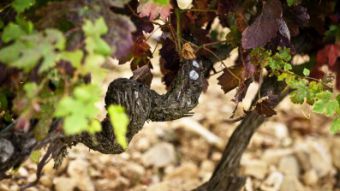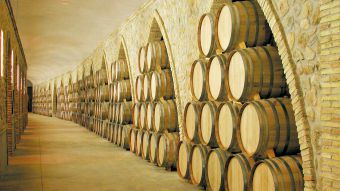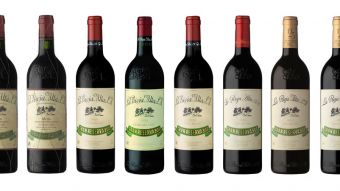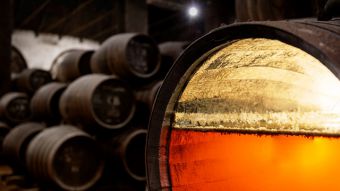Long Ageing and a homage to the land
Over 150 years ago, the Gramonas’ great-great-grandfather grew vines in the land of Sant Sadurní d'Anoia. His descendants and today’s owners continue to worship the vine, in the most reverent manner possible, through the use of biodynamics.
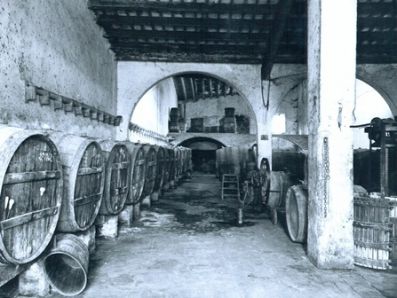 Gramona is a wine company with huge influence in the cava world and a long history to its name, established by Josep Batlle, near the River Noia, in the land of Sant Sadurní, back in 1850. He laid the first foundations of what was to become a sumptuous temple to sparkling wine and his surname graces the label of the company’s most premium cava. At around the same time, on the other side of the family, there was another Josep, whose surname was Gramona. This Josep owned a wine warehouse and several taverns in Barcelona, as well as being the president of the Taverners Guild and an important figure in the industry. We can only speculate that these two men knew each other, as the second Josep was also a native of Sant Sadurní d'Anoia. However, what we do know with certainty, is that Pilar Batlle, the granddaughter of the first Josep, and Bartolomé Gramona, the son of the second Josep, were wed. The father of the bride (and therefore the son of Josep Batlle) owned wineries and vineyards in 1881, so this marriage undoubtedly united two already very important wine families. They started to make a name for themselves in the production of sparkling wines. Until that time, sparkling wines had not been very common and the business had revolved around still wines. Their first bottles of cava appeared in 1921.
Gramona is a wine company with huge influence in the cava world and a long history to its name, established by Josep Batlle, near the River Noia, in the land of Sant Sadurní, back in 1850. He laid the first foundations of what was to become a sumptuous temple to sparkling wine and his surname graces the label of the company’s most premium cava. At around the same time, on the other side of the family, there was another Josep, whose surname was Gramona. This Josep owned a wine warehouse and several taverns in Barcelona, as well as being the president of the Taverners Guild and an important figure in the industry. We can only speculate that these two men knew each other, as the second Josep was also a native of Sant Sadurní d'Anoia. However, what we do know with certainty, is that Pilar Batlle, the granddaughter of the first Josep, and Bartolomé Gramona, the son of the second Josep, were wed. The father of the bride (and therefore the son of Josep Batlle) owned wineries and vineyards in 1881, so this marriage undoubtedly united two already very important wine families. They started to make a name for themselves in the production of sparkling wines. Until that time, sparkling wines had not been very common and the business had revolved around still wines. Their first bottles of cava appeared in 1921.
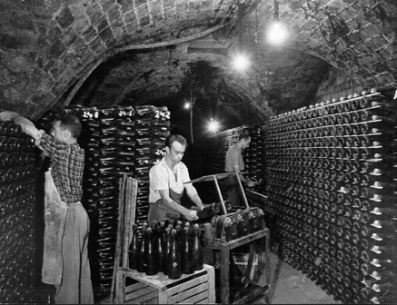 THE HARDWORKING GENERATION
THE HARDWORKING GENERATION
Their descendants, Bartomeu and Josep Lluís Gramona, took over the family business in 1945. The Gramona company refers to them as the “hardworking generation”, due to their knack of being constantly ahead of their time. These pioneering brothers were the first to experiment with the ageing of their cavas. In 1951, they produced the first Gramona III Lustros, which was released for sale 10 years later - with 10 years ageing! This was later reduced to 7 years ageing and Celler Batlle, created in homage to ancestor, Josep Batlle, replaced it as the cava with 10 years ageing. Brothers, Bartomeu and Josep Lluís Gramona, were in charge of the company until the end of the 20th century, when they handed over to their respective sons, Xavier and Jaume, who have taken Gramona firmly down the route of environmentally-friendly winemaking. They have been growing all their vineyards organically for years, and since 2014, several plots have been grown biodynamically, enjoying Demeter certification. The grapes from these plots are destined for their longest-aged cavas (which, obviously, are not yet on the market) and for some of their still wines such as Bru Pinot Noir and the Xarel-lo Font Jui.
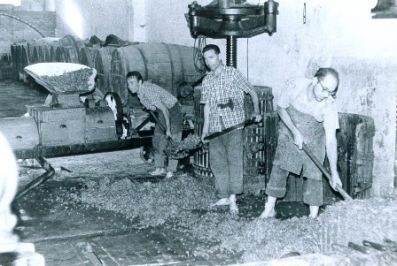 THE CATALAN DONKEY, THE BRETON HORSE AND THE ALBERA COW
THE CATALAN DONKEY, THE BRETON HORSE AND THE ALBERA COW
Teresa Martínez, a young agronomist from Rioja, is the company’s vineyard manager and she is absolutely passionate about biodynamics. She takes me around the estate giving me fascinating lessons on compost, sheep excrement (more expensive than cow’s, apparently), the time it takes to "ferment" (about a year), on the 500 and 501 preparations, the powered horns that are buried in certain locations (over 300), and the times of the year when you have to do this... Fourteen Albera cows from the Empordà region, a breed in danger of extinction, have been introduced on the estate for their excrement. There are also several donkeys, most notably the Equus africanus asinus from Gerona, commonly known as the Catalan donkey, which is also in danger of extinction. And there is even a sturdy Breton horse, whose strength is harnessed to pull the plough.... Animals and men working together to keep the earth healthy, along with the vine that grows in it and the humans who enjoy the sparkling wines, which emerge joyous and elegant from their years of ageing.
Gramona has also set up the “Alianzas para la Tierra” (Partnership for the Earth), a group of certified organic wine growers which Gramona has been advising and helping to make the move to biodynamic growing. Gramona commits to buying their grapes at a price above the average market rate, which compensates for the increase in costs involved in this type of viticulture. And all in the name of quality.


